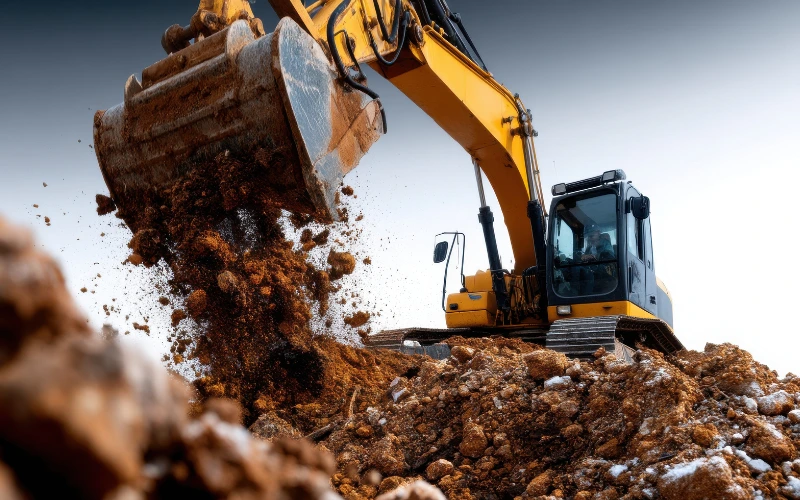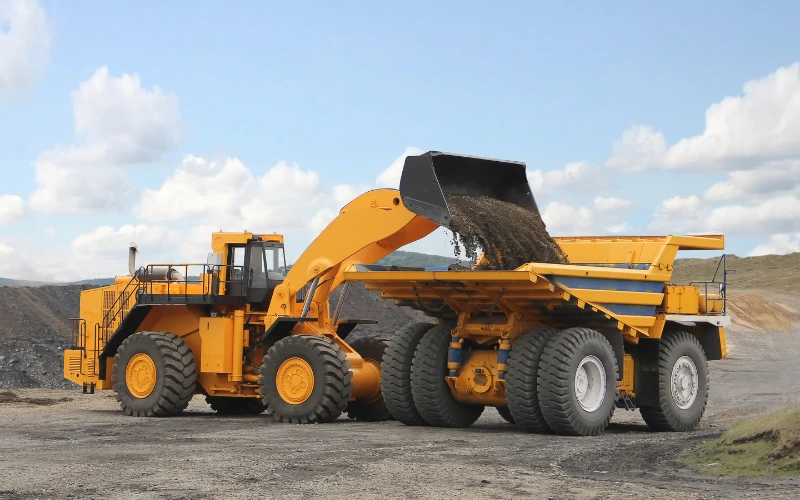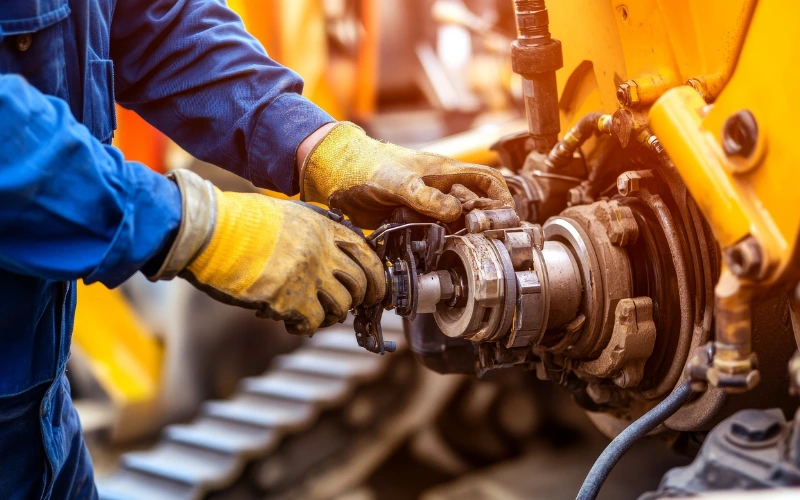Hydraulic system failures in loaders and excavators: Root causes and lubricant solutions
14 Nov 2025

Hydraulic systems are the lifeblood of loaders and excavators, powering heavy-duty tasks in challenging environments. However, they operate under extreme conditions in the mining and construction industries, which leaves them vulnerable to heat exposure and contamination and makes them prone to failure. In fact, air and water contamination are responsible for 80-90% of hydraulic failures.
In this blog, we’ll cover the common causes of hydraulic loader and excavator hydraulic pump failures while helping you to extend equipment life by choosing the right hydraulic lubricants to prevent costly downtime.
What are the common causes of hydraulic system failures?
Loaders and excavators are faced with unique stresses that can put more pressure on hydraulic systems and cause them to fail. Heavy loads can put more strain on hydraulic pumps and extreme heat can lead to fluid viscosity breakdown. Meanwhile, dust, dirt and water ingress from harsh environments can lead to contamination and breakdowns.

Root causes of hydraulic system failures
Hydraulic systems fail for many reasons, including fluid contamination, temperature extremes, poor fluid management, component wear and damage, vibrations and shock loading. This can lead to unplanned downtime and costly repairs to get loaders and excavators back in action. Some of the root causes of hydraulic system failures include:
-
Cavitation
Vapour-filled air bubbles can form and then collapse within the hydraulic fluid, which is known as cavitation. This can cause pitting on metal components and pump surfaces, leading to noise, reduced performance, contamination, efficiency loss and, ultimately, loader or excavator hydraulic pump failure.
-
Viscosity loss
Viscosity determines how well hydraulic fluid transfers power. If fluid is too thick, it struggles to flow; if too thin, it won’t provide enough pressure. Climate and operating temperature also affect viscosity. Under heavy loads, hydraulic fluids can shear, losing their protective film. This leads to overheating, internal leaks, and premature wear of pumps and valves.
-
Oxidation
When hydraulic fluid reacts with heat and oxygen, oxidation occurs, which can degrade the fluid. This can increase the fluid viscosity and lead to sludge formation, causing sticky valves, clogged filters and poor lubrication, leading to system failures.
-
Water ingress
When water comes into contact with hydraulic fluid, water ingress occurs. This can lead to fluid degradation, and the excess moisture can cause rust, corrosion and fluid emulsification. Water ingress can lead to complete system failure, which can decrease component lifespan and increase downtime.
Degradation of fluids leads to poor lubrication, which can accelerate pump, valve and cylinder damage and lead to system failures. Component wear results in unplanned downtime and leads to costly repairs for hydraulic loaders and excavators.
The role of hydraulic lubricants in preventing failures
To prevent system damage caused by poor lubrication, choosing the right hydraulic lubricant is essential. Effective fluids will lubricate components to reduce wear, prevent overheating, transmit power, seal gaps and remove contaminants that can cause damage.
You should look for the following properties when selecting hydraulic lubricants:
Property |
Impact |
|
Thermal Stability |
Resists high-temperature degradation and oxidation, which can lead to sludge formation |
|
Shear stability |
Lubricant maintains viscosity and film strength under mechanical stress. |
|
Anti-wear additives |
Form a protective film on metal surfaces to protect pumps and valves from metal-to-metal contact. |
|
Water separating |
Minimises emulsification and prevents water from contaminating the system, causing rust and wear |
By working alongside a lubrication partner, like Gulf CARE, we can offer expert advice on which hydraulic lubricants to choose for your specific loader or excavator. That way, you can be sure that your heavy-duty lubricants have the right properties for your equipment and operating conditions to provide the right protection and prevent premature wear and downtime.

Best practices for maintaining your hydraulic system
Preventing system damage in the first place is more cost-effective and time-effective than dealing with issues as they arise. Preventive maintenance can help you detect minor issues and resolve them before they become catastrophic failures and costly repairs.
Here are a few preventive maintenance practices you can use to maintain your hydraulic system and reduce failures and downtime:
-
Regular oil analysis chemically analyses a fluid sample to determine the condition of the fluid and detect early signs of oxidation, contamination and water ingress. This helps to detect minor issues before they become major problems, which minimises downtime, reduces repair costs and extends equipment life.
-
Proper storage and handling of hydraulic fluids is essential to ensure they are stored at the right temperature, under cover and are not at risk of contamination. Correct storage and handling help to maintain the quality of the lubricant, prevent spillage and unnecessary pollution and reduce costs related to waste.
-
Scheduled maintenance checks on loaders and excavators allow for early detection of problems so you can avoid larger, more costly issues. This can improve overall performance, enhance safety and ensure equipment productivity, which can minimise project delays.
Through regular monitoring, you can identify lubricant and equipment issues early on and rectify them before they become bigger problems. This can prevent project delays, expensive repairs, and maximise uptime while reducing maintenance costs.
Protect hydraulic systems for the long term
Many hydraulic system failures are preventable with the right fluid strategy. By using hydraulic fluids with the necessary additives for your equipment and working environment, you can give your loader or excavator the best protection. Regular maintenance and fluid analysis can predict issues early on before they turn into expensive problems, and an expert lubrication partner, like Gulf CARE, can help to ensure your loader or excavator is efficient and reliable for many years to come.
Explore our advanced range of industrial lubricants, designed to protect your loaders and excavators from downtime.

